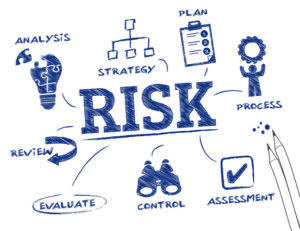Search
Book-keeping vs Accounting: Key Differences Explained Finance, Tech & Analytics Career Resources
November 25, 2020

The goal is to ensure that the company pays the correct amount of taxes; does not overpay or underpay. https://www.bookstime.com/ This type of accounting provides information to internal users, such as managers and executives. The goal is to help these individuals make decisions about how to run the company in a way that will maximize profitability.
The Role of Technology in Accounting and Bookkeeping
Most accounting jobs will generally require at least a bachelor’s degree in accounting or a related field. Many employers also require accounting candidates to have professional certifications, such as the Certified Public Accountant (CPA) designation. Accounting software allows you to do basic tasks such as tracking inventory, invoicing and payments, and generating reports on sales and expenses. It’s useful for small businesses and freelancers who don’t have the resources to hire an accountant or bookkeeper. Check out our recent piece on the best accounting software for small businesses. It’s also worth noting that while all CPAs are accountants, not all accountants are CPAs.

Using Accounting Software
An accountant primarily provides in-depth analysis and accurate reporting on financial records, most often completed as a supporting role to a chief financial officer (CFO) or a company’s finance department. Accountants also review financial records for tax filings for individuals and businesses. They examine the financial statements prepared by accountants and ensure they accountancy represent the company’s financial position accurately.
- Accounting software, such as QuickBooks and Xero, has become essential tools for businesses of all sizes.
- Determining the financial position and financial performance of the business is the main function of accounting.
- Every year, the IRS updates the tax code, which provides new challenges for tax accountants.
- Accounting, as a broader term, encompasses various specialized fields such as financial accounting, cost accounting, and managerial accounting, offering a wide range of career opportunities within organizations.
- Accounting is a broader field encompassing financial analysis, reporting, and decision-making, while bookkeeping primarily focuses on recording financial transactions.
How To Become a Certified Management Accountant (CMA)
Bookkeeping is an essential aspect of accounting, and it is a narrow field that focuses on simply recording financial transactions. On the other hand, accounting encompasses a broader range of activities, including financial analysis, reporting, and strategic decision-making. The certified management accountant (CMA) certification signals advanced abilities in financial accounting, enterprise finance, and strategic planning. Professionals with CMA credentials typically occupy senior or management-level roles in corporate accounting or finance departments. Some reach the top positions in the accounting profession to work as financial controllers and chief financial officers (CFOs). To become a public accountant, you’ll typically need to become a CPA and have a four-year degree in accounting from an accredited college or university.
ACCT 321 Intermediate Financial Accounting I
In contrast, accountancy encompasses the entire field of financial management, including accounting, auditing, forecasting and more. Such professionals are granted certain responsibilities by statute, such as the ability to certify an organization’s financial statements, and may be held liable for professional misconduct. Non-qualified accountants may be employed by a qualified accountant, or may work independently without statutory privileges and obligations. Professional experience requirements include a minimum of two years of continuous full-time employment in financial management or management accounting. Your employment must include decision-making duties that draw on financial management and/or management accounting best practices.
- Accountants use accounting information systems to collect, store, and analyze financial data.
- However, accounting plays a key role in the strategic planning, growth, and compliance requirements of a company.
- They use their skills in accounting and investigation to gather evidence and build cases against individuals or organizations accused of wrongdoing.
- Accountants, compliance officers, and auditors deal with accounting and accountancy since they have to understand both the technical and analytical parts of the process.
- Its use in organizing business transactions and meeting regulatory requirements makes it a field that requires extensive knowledge and study.
- An accountant is a common career choice for those with an analytical mindset and a desire to work with financial data.
Different types of accounting exist because businesses have different financial needs. For example, public companies are required by law to use Generally Accepted Accounting Principles (GAAP), while private companies may use any accounting method that suits their needs. While financial accountants often use one set of rules to report the financial position of a company, tax accountants often use a different set of rules. These rules are set at the federal, state, or local level based on what return is being filed. The reports generated by various streams of accounting, such as cost accounting and managerial accounting, are invaluable in helping management make informed business decisions.


Like accountants, an auditor can work internally for a single company or for a third party, such as a public accounting firm, to audit various businesses. Additionally, many auditors are employed by governments and regulatory bodies, for example the adjusting entries Internal Revenue Service (IRS). An accountant is a professional with a bachelor’s degree who provides financial advice, tax planning and bookkeeping services. They perform various business functions such as the preparation of financial reports, payroll and cash management. In essence, accounting serves as the language of business, enabling entities to track income and expenses, assess profitability, manage cash flow, and comply with financial regulations.
Important Links:
Tags:
Courses
-
MBA for Executives
-
testssd
-
testssd
-
testssd
-
testssd
-
testssd
-
BBA from UK University
-
Banking course + Job
-
MBA from ARU, Anglia Ruskin University (UK)
-
4-IN-1 Professional Diploma in Banking, Financial Services & Insurance (PDBFSI)
-
MBA from HSNC University (Mumbai, India)
-
Sage Foundation - Professional Diploma in Banking
-
3-in-1-management-program
-
Post Graduate Diploma in Banking & Finance
-
Post Graduate Diploma in Digital Marketing
-
Post Graduate Diploma in Integrated Marketing, Advertising & Communication
-
4-IN-1 Professional Diploma in Banking, Financial Services & Insurance (PDBFSI)
-
Professional Diploma in Digital Marketing
-
Professional Diploma in Real Estate Management
-
Professional Diploma in Photography
-
Certificate in Business English
